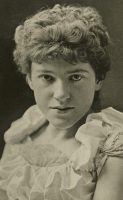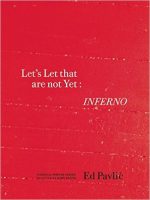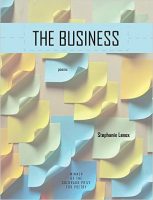November 5, 2015
Edited by David Sanders
Specimen Days
1613 – Isaac de Benserade, French poet (d. 1691), is born.
1836 – Karel Hynek Mácha, Czech poet (b. 1810), dies.
1850 – Ella Wheeler Wilcox, American author and poet (d. 1919), is born.
1884 – James Elroy Flecker, English poet/dramatist (Hassan), is born.
2010 – Adrian Păunescu, Romanian poet and politician (b. 1943),dies.

I Like Cigars
I like cigars
Beneath the stars,
Upon the waters blue.
To laugh and float
While rocks the boat
Upon the waves,—Don't you?
To rest the oar
And float to shore,–
While soft the moonbeams shine,—
To laugh and joke,
And idly smoke;
I think is quite divine.
—Ella Wheeler Wilcox (1850–1919)
I like cigars / Beneath the stars, / Upon the waters blue.” —Ella Wheeler Wilcox (1850–1919)
World Poetry
Petition Urges Ayatollah to Pardon Condemned Iranian Poets

Two Iranian poets sentenced to long prison terms and floggings have vaulted to international literary prominence over their prosecution, which appears to reflect a tough new crackdown on rights and creative arts in Iran. On Sunday, the PEN American Center, an advocacy group that promotes free expression worldwide, sent a petition signed by 116 poets and writers to Iran’s supreme leader, Ayatollah Ali Khamenei, beseeching him to grant pardons to the condemned poets, Fatemeh Ekhtesari, 31, and Mehdi Mousavi, 41.
'Poetry is a witness' to Suffering Wrought by Syria's Civil War
The poetry radiating from the Syrian civil war echoes with nostalgia, bombs and betrayals; it slips into the lives of torn-apart families and boys of defiance who have grown into men with bandoleers and Kalashnikovs. It is the verse of the forsaken in a nation of madmen with black flags, cities of ruin and rivers of refugees.
Poet Akiko Yosano’s Last Creation Found
A notebook containing tanka, 31-syllable poems, written by poet Akiko Yosano (1878-1942) shortly before her death was found at a relative’s house in Tokyo. The patchy and disorderly handwriting was done in pencil. “[The note] shows the passion of Akiko, who continued creating poems to the end, even on her deathbed,” said an official at the Yosano Akiko Memorial Hall in Sakai, Osaka Prefecture. The note is on show at the memorial hall, part of a group of cultural facilities known as Sakai Plaza of Rikyu and Akiko, through Dec. 13. Yosano’s great-grandchild found the A5-size notebook in a closet. About 90 tanka poems were written on its about 40 pages. In autumn of last year, the great-grandchild asked the memorial hall to examine the contents.
PEN American Center sent a petition to Iran’s supreme leader beseeching him to pardon poets Fatemeh Ekhtesari and Mehdi Mousavi.
Recent Reviews
The Collected Poems and Drawings of Stevie Smith, review: 'unstoppable individuality'
by Tom Payne

In 1939, Geoffrey Grigson published an anthology of the best poetry that had appeared in his periodical New Verse. It had the big names of the time – Auden, MacNeice, Spender, Dylan Thomas, Day-Lewis – offering lyrical pronouncements on troubled times. The brief biographies at the back were brisk and clubby, with most poets’ names followed by the name of a public school and then by Oxford or Cambridge. There was only one woman whom Grigson regularly published: Kathleen Raine. Why not Stevie Smith?
Boston Boys
The poetry of John Wieners and John Updike.
by Dan Chiasson
The poet John Wieners lived, from the early nineteen-seventies until his death, in 2002, at the age of sixty-eight, at 44 Joy Street, in Boston, on the back slope of Beacon Hill, where disembowelled couches and gooseneck lamps are abandoned curbside on the first of every month. A few blocks over, and a world away, Robert Lowell spent his childhood at 91 Revere Street; up the hill was the site of the house where Henry Adams had grown up “under the shadow of the Boston statehouse.” Wieners was part of a small enclave of dropouts and artists in that part of Boston, now replaced by medical students and first-year associates. New York poets ran a thriving mid-century avant-garde, led by Frank O’Hara; San Francisco had the Beats. Wieners dipped into both scenes and returned to Boston, the backwater where he was born. “The detergent of bourgeois Boston cleans everything,” Elizabeth Hardwick wrote, in “Boston: The Lost Ideal,” one of the great literary disses of a major city. “If there were a Bohemia, its members would indeed live on Beacon Hill.”
We’ll Photograph Everything
John Clegg brings light to the ‘obscure small epics’ of JH Prynne
For dent inflict yet amuse enamel will livid exceed
tactic nursing humid loss, more even alert at numb
unwind entry. Level ground pacific inversion has
wasted trapper, has few slicks. Run out portal upper
What is anyone to make of this – one of seventy-two quatrains, each beginning with a capital letter but only occasionally ending on a full stop, given as apparently a single continuous poem under the title Streak ~~~ Willing ~~~ Entourage/Artesian? Clearly, it’s unreadable in any conventional sense. There is no surprise, because the syntactic units are too small to provoke any expectation.
The Dolemen and Nabmen
Tom Pickard's hoyoot: Collected Poems and Songs
By Ange Mlinko
It is a truism by now that poets from the United Kingdom (and Canada, and Australia, and other Anglophone precincts) hold little interest for American poets, and have even less presence in their classrooms, magazines, and short lists. It would heavy bore me to have to enumerate the reasons why this is; I’ll just say that a penchant to think of art as a comfort rather than a challenge ranks high. After all, “relatability” in our day is the literary virtue par excellence. Perhaps it’s a bad time to champion work outside our borders, particularly from a poet who valorizes border-dwelling and even though this poet has purloined a good deal of our William Carlos Williams and Ezra Pound — and whose poems until recently were kept in print mostly by Chicago-based Flood Editions. Thus, Tom Pickard.
The collected poems and drawings of Stevie Smith are an “unstoppable individuality” by Stevie Smith.
Broadsides
Modernist Poetry in a Crowdsourcing Age
Jorie Graham resists classic pleasures like closure, a concept anathema to the poet and her country.
By Ange Mlinko
In her 2003 Paris Review interview, Jorie Graham evokes a radiant image from her childhood in Rome: a “huge marble statue of the reclining Apollo on the landing above the ballet class that we would run up the wide flight of stairs to, sweaty, after class, a gaggle of girls in black leotards, and lie on to cool off; he was so cold!” Years later, this constellation of sensuous details—black leotard and white marble; small, hot, dance-wrung bodies on one big, cold, static one—was transmogrified into a poem. Graham, now a mother, brings a forgotten black leotard through a snowy night to the slumber party where her daughter is. She watches the girl through a window as the white flakes dance around her—not like ballerinas, of course, but like the wild random things they are. And the poem, too, dances around, like the flakes—or the flocks of starlings she remembers, or the iridescence on a crow she saw in a painting; then suddenly she’s recalling her ballet teacher from Stalingrad, then suddenly she’s recalling the “very black Indian women” from Christopher Columbus’s diary, whom he captured on a night of snowfall. Because one of the women has a piece of gold in her ear, the ship’s admiral extrapolates that there is “‘…gold / in that land’—.” The poem ends abruptly on the dash, no lesson drawn from all these scenes, no closure, no affirmation of Yeats’s notion that “a poem comes right with a click like a closing box.” We’re not in Rome anymore, and there is no Apollo, god of measure and limit. We are in the New World.
The State of Crtiticism
by William Logan
The State of Criticism lies somewhere between New York and New Jersey. Its wetlands and rocky shore have long been scarred by chemical factories and oil refineries, close to waste ground whose rusting signs announce, “Bird Sanctuary.” Shore birds flock there, the guidebooks say; but no snipe or plover has been seen in living memory. That hardly matters, since the state bird is the vulture, which flourishes; and the State of Criticism is widely celebrated for the quality of its carrion. I’m wary of conferences, or round tables, or conference calls on the State of Criticism, because I’d rather be writing poetry than writing criticism, and I’d rather be writing criticism than criticism about the state of criticism. Randall Jarrell remarked, sixty years ago, that the “ambitious young intellectual . . . buys himself a new typewriter, rents himself a room, and settles down to write . . . book reviews, long critical articles, explications.”* Rather than risk writing poetry or fiction, that is.
What is the legacy of the Modernists at a time when the field of American poetry is becoming an adjunct of pop culture?
Drafts & Fragments
Pet Rescue: Unseen TS Eliot Cat Poem Recovered
by Alison Flood

In Old Possum’s Book of Practical Cats, TS Eliot gave us a Mystery Cat, in Macavity, an Original Conjuring Cat, in Mr Mistoffelees, and a Curious Cat, in the Rum Tum Tugger. Now it turns out that he also dreamed up a Gourmet Cat, in Cumberleylaude, the feline star of a previously unpublished cat poem who has a taste for “salmon, duck, or expensive French wines”.
Poetry In the News
Forgotten Dylan Thomas Poem A Dream Of Winter Unveiled

A Dream Of Winter was discovered by chance by Swansea University professor John Goodby, who unearthed the poem last year in a 1942 magazine. Celyn Jones, who played Thomas in the film Set Fire To Our Stars, read the poem on Friday night at The Wheatsheaf in London's Fitzrovia, where Thomas met his soon-to-be wife Caitlin Macnamara in 1936.
Scottish Poetry Library Rreopens after £500,000 Revamp

An Edinburgh library, which holds the largest open-access collection of Scottish poetry in the world, has re-opened following a £500,000 revamp. The Scottish Poetry Library was officially opened by Culture Secretary Fiona Hyslop and National Poet of Scotland Liz Lochhead. The library, in Jackson's Entry off the Royal Mile, has more than 45,000 books. There are new soundproof and recording spaces so that poetry can be recorded as well as written.
Swansea University professor John Goodby recently unearthed a forgotten poem by Dylan Thomas.
New Books
Let’s Let That Are Not Yet: Inferno by Ed Pavlic
[Paperback] Fence Books, 96 pp., $15.95

"You've been thinking to yourself that it all feels very American." Ed Pavlic's tireless, resourceful speaker is American, of indeterminate race, implicated at every conceivable point of entry into the struggles that go on "here," which is everywhere, the Inferno of the title: "if an //analogy affects an enemy then let's let // inferno the enemy inferno the enemy."
Empty Chairs: Selected Poems by Xia Liu
[Paperback] Graywolf Press, 224 pp., $16.00
Empty Chairs presents the poetry of Liu Xia for the first time freely in both English translation and in the Chinese original. Selected from thirty years of her work, and including some of her haunting photography, this book creates a portrait of a life lived under duress, a voice in danger of being silenced, and a spirit that is shaken but so far indomitable. Liu Xia's poems are potent, acute moments of inquiry that peel back to expose the fraught complexity of an interior world. They are felt and insightful, colored through with political constraints even as they seep beyond those constraints and toward love.
The Business by Stephanie Lenox
[Paperback] Center for Literary Publishing, 88 pp., $16.95

What does it mean to work in the age of the cubicle? The Business takes on the modern workplace with sharp-witted poems that sting like a paper cut. A former secretary, Stephanie Lenox positions herself as a poetic note-taker of the mundane. Organized by the classical components of Greek tragedy, these poems enact the relationships, heartbreaks, and small heroic efforts that make up our working lives. Think there's nothing poetic about annoying coworkers, endless meetings, and stained coffee mugs? Think again. While tragedy provides the organizational structure for this collection, humor plays a central role. This collection transforms office politics and paper clips into a funny and critical examination of the mortal rat race. If you've ever been fired, let go, unemployed, underemployed, or overlooked, these poems are for you. Begun on stolen reams of printer paper, this book reclaims the hours of our lives we give, out of necessity, to others in order to survive.
All Souls: Essential Poems by Brenda Marie Osbey
[Paperback] LSU Press, 314 pp., $25.95
All Souls: Essential Poems brings together work that reflects the interweaving of history, memory, and the indelible bonds between living and dead that has marked the output of Louisiana Poet Laureate Emerita Brenda Marie Osbey. Comprising poems written and published over the span of four decades, this thematic collection highlights the unity of Osbey’s voice and narrative intent.
Posthumous Cantos by Ezra Pound
[Paperback] Carcanet Press Ltd, 192 pp., $22.99

Ezra Pound’s Posthumous Cantos collects unpublished pages of his great poem, drawn from manuscripts held in the archive at Yale’s Beinecke Library and elsewhere. They are assembled by Pound’s Italian translator, the critic and scholar Massimo Bacigalupo, into a companion book to the Cantos, running from 1917 to 1972 and including the Cantos he wrote in Italian in 1944-5. This is the first English edition of a crucial part of the Pound canon. Posthumous Cantos is arranged to reflect the eight phases of the Cantos’ composition.
What does it mean to work in the age of the cubicle? The Business by Stephanie Lenox takes on the modern workplace.
Correspondences
Ben Mazer Interviewed by Robert Archambeau

RA: I'd like to begin with process. Often, poets have spoken of their process as one or another kind of mixture of deliberation and intuition—whether they call the intuitive element "the muses" or (in Jack Spicer's case) a radio transmission from Mars. How does a poem begin for you, and what happens once you have the initial impulse?
BM: Jack Spicer was deeply in love with the relatively unknown but deeply brilliant poet Landis Everson, who in turn, late in his life, fell deeply in love with me, so I not only know all of the Spicer literature, but have heard many intimate, off the record stories of Jack's thinking about poetry, and his methods of composition.
Christopher Ricks on TS Eliot’s Greatness—and his “ugly touches”
TS Eliot was one of the great poets of the 20th century. In the words of Christopher Ricks, though, his work was also “difficult and allusive and subtle.” Along with his co-editor Jim McCue he has brought out a long-awaited two-volume annotated edition of the complete poems, which explains Eliot’s literary references and puts the poems in historical context. Ricks, also one of our most penetrating literary critics, spoke to Prospect’s Sameer Rahim about the project.
Tracy K. Smith Talks with Gregory Pardlo on Poetry, Manfestos, and David Bowie vs Elton John
Gregory Pardlo’s book of poetry, Digest, won the Pulitzer Prize last year. Tracy K. Smith’s memoir, Ordinary Light, has been shortlisted for this year’s National Book Award for non-fiction. Here, the two poets discuss the balance between writing and family, the confessional vs. the abstract, and David Bowie vs. Elton John.
Ben Mazer spoke to Robert Archambeau about the late Bay Area poet Jack Spicer.
Envoi: Editor’s Notes
And seeing the cat in the article about the newly found poem by Eliot makes me think of this poem:
Cat in an Empty Apartment
Die – you can't do that to a cat.
Since what can a cat do
in an empty apartment?
Climb the walls?
Rub up against the furniture?
Nothing seems different here,
but nothing is the same.
Nothing has been moved,
but there's more space.
And at nighttime no lamps are lit.
Footsteps on the staircase,
but they're new ones.
The hand that puts fish on the saucer
has changed, too.
Something doesn't start
at its usual time.
Something doesn't happen
as it should.
Someone was always, always here,
then suddenly disappeared
and stubbornly stays disappeared.
Every closet has been examined.
Every shelf has been explored.
Excavations under the carpet turned up nothing.
A commandment was even broken,
papers scattered everywhere.
What remains to be done.
Just sleep and wait.
Just wait till he turns up,
just let him show his face.
Will he ever get a lesson
on what not to do to a cat.
Sidle toward him
as if unwilling
and ever so slow
on visibly offended paws,
and no leaps or squeals at least to start.
—Wisława Szymborska
translated by Clare Cavanagh & Stanisław Barańczak
“Something doesn’t start / at its usual time. / Something doesn’t happen / as it should.”—Wisława Szymborska